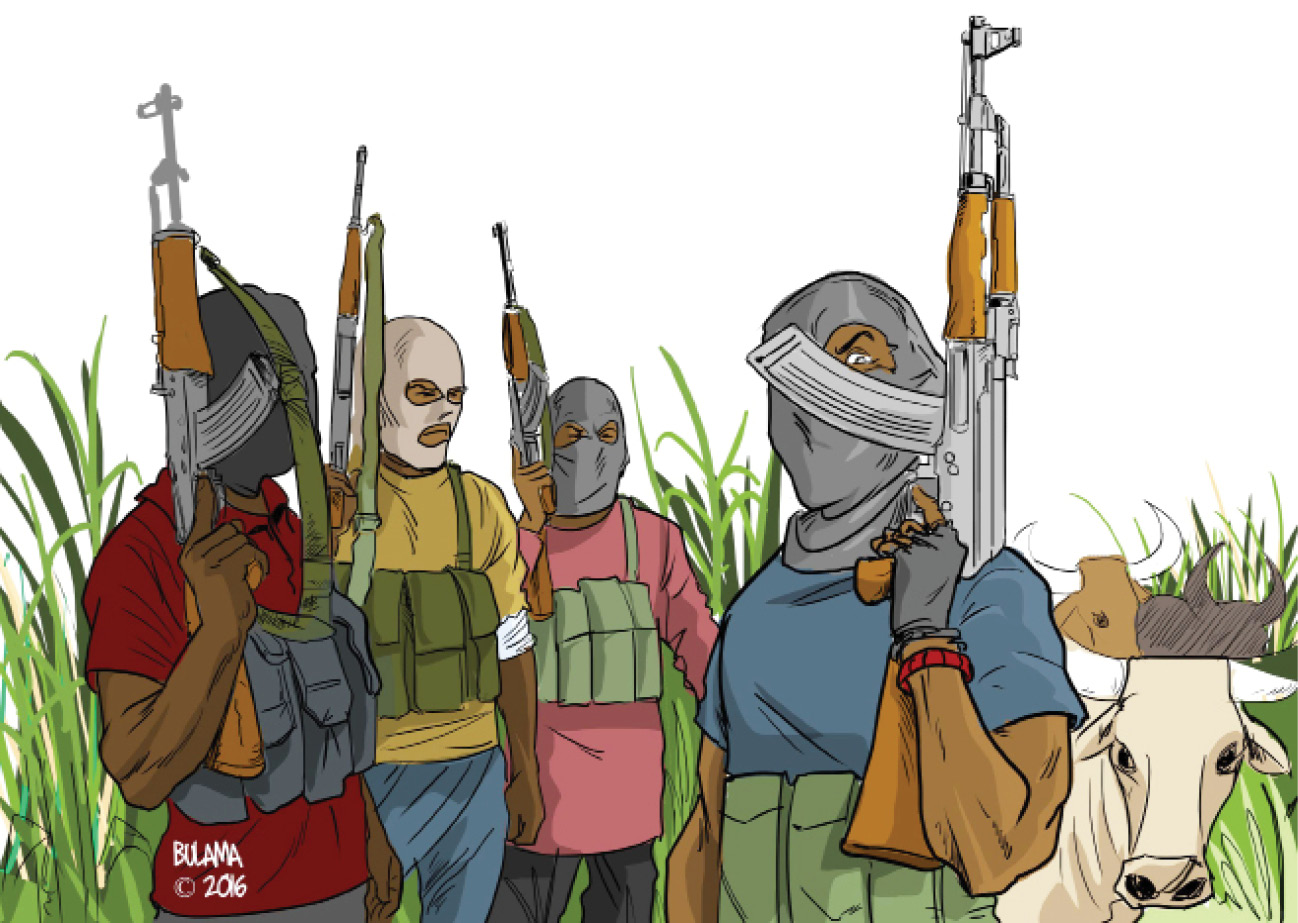Timely efforts to end banditry
In a desperate move to tame banditry, the Governors of Katsina, Kaduna, Niger and Zamfara states last week separately but still in unison declared a partial shutdown on the communities prone to bandits’ attacks in their states. The orders imposed various restrictions on the movement of people, vehicles, cattle and other goods and animals across […]

File photo
In a desperate move to tame banditry, the Governors of Katsina, Kaduna, Niger and Zamfara states last week separately but still in unison declared a partial shutdown on the communities prone to bandits’ attacks in their states. The orders imposed various restrictions on the movement of people, vehicles, cattle and other goods and animals across each of the four states. Many rural markets, schools, roads and filling stations have also been ordered closed.
Combined, over 30 local government areas in the four states are affected by these new orders. According to the governors, the restrictions are a “bitter pill” designed to “strangle” bandits by cutting off all their supplies of food, fuel, and crucially, information. As one Katsina resident and community leader, Nasiru Al-Mustapha Danye Jibia, reportedly told Daily Trust, if the bandits “are pressed, they will be left with no other option than surrender as we are witnessing with Boko Haram terrorists recently”.
- Intrigues as PDP bigwigs battle for 2023 presidential ticket
Despite huge pay, senators, reps, fleece aides
As to be expected however, the new measures are causing hardships to Nigerians caught up in these areas. Prices of food and fuel have skyrocketed. For instance, a 4-litre gallon of petrol reportedly now sells for N8,000 in parts of Zamfara and Katsina states. Similarly, the closure of weekly markets, often central to the rural economy in northern Nigeria, is taking its toll on many communities, as people can no longer buy or sell the very wares upon which their livelihoods depend.
It is heartening that the Governors of the four states have now seen the need to work together, and found the political will to do so, after previous failed attempts. This is a common problem they face, after all, the bandits have no qualms roaming and rampaging across forests and bushes contiguous to all four states. It is also worthy of note that the orders indicate a shift away from the usual over-reliance on the federal government.
It is early days yet for accessing the effectiveness of these latest measures against banditry. But there are grounds optimism. Banditry and terrorism depend on the supply of food, fuel, medicine, and other necessities of life to thrive. More importantly, bandits’ operations depend on information and intelligence about the communities they harass, and especially about security agencies’ plans. Sadly, both information and supplies are provided to the bandits by unscrupulous members of the same local communities under siege. Thus if competently implemented over a reasonable time, these measures could well bring bandits to their knees and help in returning normalcy to the affected areas. This requires concerted efforts by all to ensure total compliance, however.
We urge the states and their leaders to continue working together towards joint coordination, information sharing, funding and effective enforcement of these measures. The governors of the four states can also form a block, like the Northeast Governors, to engage and pressure the federal and other state governments to provide much needed help. Whatever they do, there is no gainsaying the fact that the four governors and their people need one another to end this scourge. States neighbouring the four, such as Kano, Kebbi, Sokoto, Plateau, Kwara and Nassarawa states should also see the need to help end banditry because experience has shown that the bandits respect no state borders.
The federal government too can, and should, lend a helping hand. The shutdown of internet and telecommunications services in Zamfara State could, for example, be extended to the affected areas in the three other states. This is also the right time for the federal government to step up its military efforts in the areas because the current measures cannot be sustained for very long. Deploying its recently acquired Super Tucano fighter jets to the area will indicate to all that the government means business towards ending banditry and sundry criminality.
We are saddened that Nigerians in these states are confronted with the impossible choice between life and livelihood. While the new measures are necessary to save lives, they nonetheless deprive many people of their livelihoods. While we urge the communities to abide by the new regulations, we strongly urge governments and well-meaning Nigerians to contribute relief materials and palliatives to those most affected to enable them comply. Without these, many ordinary citizens will be forced to abandon compliance and thus compromise the whole effort.
While we hope that the measures will work and bring banditry in these states to an end, we invite all northern governors to learn a lesson from this on other matters: if you look inward and work together to confront common problems, there is a lot that you can do. All too frequently, northern leaders overlook how much potential they command politically, economically and culturally within and beyond Nigeria if they work together. Now is the time for the leaders to realize this anew. Concerted efforts can end banditry, and much else besides.
